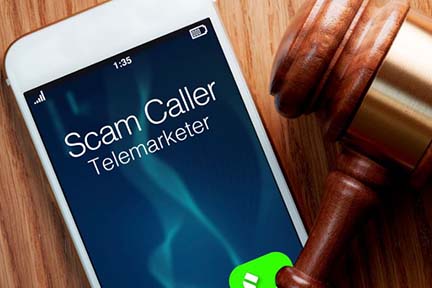
Whitmer Makes Appointments to Boards and Commissions

FOR IMMEDIATE RELEASE March 14, 2024 Contact: [email protected]
Governor Whitmer Makes Appointments to Boards and Commissions
LANSING, Mich. — Today, Governor Gretchen Whitmer announced the following appointments to the Michigan Committee on Juvenile Justice, Public Health Advisory Council, Michigan Health Information Technology Commission, Human Trafficking Commission, Child Abuse and Neglect Prevention Board (Children’s Trust Fund), Michigan Board of Marriage and Family Therapy, Child Lead Exposure Elimination Commission, Michigan Tree Fruit Commission, The Grand Rapids-Kent County Convention/Arena Authority, Council on Climate Solutions, Statewide Housing Partnership, and MI STEM Council.
Today’s appointees represent Michigan’s young professionals, communities of color, seniors, and more. The appointees announced this week build on Governor Whitmer’s work to ensure appointees reflect Michigan’s diverse population. Sixty percent of appointees are women or people of color, and the Whitmer cabinet is the most diverse in Michigan history.
Michigan Committee on Juvenile Justice
Nancy Bennett, of Okemos, is the division director of the grants and community services division for the Michigan Department of State Police. Bennett received her Bachelor of Arts in sociology from the University of Michigan and her Master of Science in justice from American University. Nancy Bennett is reappointed to represent public agencies concerned with delinquency prevention or treatment for a term commencing March 14, 2024, and expiring August 2, 2027.
The Michigan Committee on Juvenile Justice was created by Governor Whitmer’s Executive Order No. 2022-7 which abolished the committee restructured by Executive Order No. 2017-12 and recreates this Committee in alignment with the requirements of the Juvenile Justice and Delinquency Prevention Act. Under the executive order, the Committee is tasked with the development and review of the state’s juvenile justice plan.
This appointment is not subject to the advice and consent of the Senate.
Public Health Advisory Council
Nicholas Derusha, of Newberry, is the director and health officer of the Luce-Mackinac-Alger-
The Public Health Advisory Council was created within the Michigan Department of Health and Human Services at the recommendation of the Public Health Advisory Commission. The Council will develop an action plan for implementing the recommendations of the Commission and is tasked with providing advice about emerging issues in public health, monitoring the effectiveness of Michigan’s public health response system, and reviewing multiagency efforts to support collaboration and a unified approach on public health responses.
This appointment is not subject to the advice and consent of the Senate.
Michigan Health Information Technology Commission
Ninah Sasy, of Okemos, is the policy and planning director with the Michigan Department of Health and Human Services. She is responsible for leading the development and implementation of the Department’s Social Determinants of Health (SDoH) Strategy across state agencies and throughout Michigan. Previously, she served as executive director for the Michigan Department of Treasury and as the chief clean water public advocate for the Michigan Department of Environment, Great Lakes, and Energy. Sasy received her Bachelor of Science in medical laboratory science from Michigan State University and her Master of Science in administration from Central Michigan University. Ninah Sasy is designated to serve as the representative of the Department of Health and Human Services for a term commencing March 14, 2024, expiring August 3, 2027. She succeeds Beth Nagel.
The Michigan Health Information Technology (HIT) Commission’s mission is to facilitate and promote the design, implementation, operation, and maintenance of an interoperable health care information infrastructure in Michigan.
This appointment is not subject to the advice and consent of the Senate.
Human Trafficking Commission
Tiffany Martinez, of Okemos, is the project director for the victims’ services division for the Michigan Department of Health and Human Services. Previously, she worked as the supervised parenting time program director for HAVEN and as a therapist for Ennis Center for Children in Flint. Martinez received her Bachelor of Social Work from Grand Valley State University and her Master of Social Work from the University of Michigan. Tiffany Martinez is designated to serve as the representative of the Department of Health and Human Services until a successor is appointed.
The Human Trafficking Commission is designed to identify sources for grants that will assist in examining and countering human trafficking, fund research programs to determine the extent and nature of human trafficking in this state, and provide information and training to police officers, prosecutors, court personnel, social services personnel, and other individuals.
This appointment is not subject to the advice and consent of the Senate.
Child Abuse and Neglect Prevention Board (Children’s Trust Fund)
Kristin Totten, of Kalamazoo, is an assistant prosecuting attorney for Kalamazoo County. Ms. Totten is reappointed to represent the legal community for a term commencing March 14, 2024, and expiring December 19, 2026.
Angela Dudley, of Owosso, is the founder of Millstone Ministry, an organization that partners with local law enforcement across the county to provide world-class cyber resources and training to dismantle sex trafficking on the front lines. Dudley is appointed to represent the general public for a term commencing March 14, 2024, and expiring December 19, 2026. Angela Dudley succeeds Sharif Hussein whose term has expired.
The Children’s Trust Fund (CTF) was established by the Michigan Legislature in 1982 and serves as a voice for Michigan’s children and families and promotes their health, safety, and welfare by funding effective local programs and services that prevent child abuse and neglect.
These appointments are subject to the advice and consent of the Senate.
Michigan Board of Marriage and Family Therapy
Jacob Moon, of Grand Rapids, is the founder and clinical director at Clarity Therapy and Consulting. Moon earned his Bachelor of Science in human services and a Master of Science in marriage and family therapy from the University of Phoenix. Jacob Moon is appointed to represent marriage and family therapists for a term commencing March 14, 2024, and expiring June 30, 2027. Jacob Moon succeeds Silvia Leija whose term has expired.
Dr. Gavin Beckford, of Canton, is an economic development manager and DDA manager for the Charter Township of Canton. Beckford earned a Bachelor of Business Administration and Marketing at Howard University, a Master of Business Administration at Babson College, and a Doctor of Philosophy at the Instituto de Empresa in Madrid, Spain. Dr. Gavin Beckford is appointed to represent general public for a term commencing March 14, 2024, and expiring June 30, 2027. Dr. Gavin Beckford succeeds Karol Ross whose term has expired.
Dr. Siedah Spencer-Ardis, of Detroit, is a practicing marriage and family therapist and owner of the Focus Therapy Clinic. She works with minority individuals, blended families, and groups. Spencer-Ardis has earned a Master of Arts in marriage and family therapy, as well as a Doctor of Philosophy in marriage and family therapy at Northcentral University in Scottsdale, Arizona. Dr. Siedah Spencer-Ardis is appointed to represent marriage and family therapists for a term commencing March 14, 2024, and expiring June 30, 2027. Dr. Siedah Spencer-Ardis succeeds Amy Campbell whose term has expired.
The Michigan Board of Marriage and Family Therapy was created to license and regulate the practice of marriage and family therapy in Michigan, which is the provision of guidance, testing, discussions, therapy, instruction, or advice that is intended to avoid, eliminate, relieve, manage, or resolve marital or family conflict or discord, to create, improve, or restore marital or family harmony, or to prepare couples for marriage. Underlying all duties is the responsibility of the Board to promote and protect the public’s health, safety, and welfare.
These appointments are subject to the advice and consent of the Senate.
Child Lead Exposure Elimination Commission
Courtney Pendleton, of St. Johns, is the deputy director for the Michigan Department Licensing and Regulatory Affairs. Courtney Pendleton has over 25 years of experience with the department and has also served as assistant director, investigator, and departmental specialist. Pendleton received her associate degree in business from Lansing Community College and her Bachelor of Science in management from the University of Phoenix. Courtney Pendleton is appointed to represent the designee of the director of the Department of Licensing and Regulatory Affairs for a term commencing March 14, 2024, and expiring December 14, 2026.
Angela Hood, of Flint, is the executive director of Educare Flint and the Flint Early Childhood Collaborative at the Flint Center for Education Excellence. She is also a Ph.D. student studying Higher, Adult, and Lifelong Education. Hood received her Bachelor of Science and Master of Business Administration in accounting from Northwood University. Angela Hood is reappointed to represent the general public for a term commencing March 14, 2024, and expiring December 14, 2027.
The Child Lead Exposure Elimination Commission focuses on implementing the recommendations of the former Child Lead Poisoning Elimination Board and monitoring the state’s efforts to eliminate lead exposure in children. The Commission acts in an advisory capacity to the Governor and department director to coordinate and collaborate with all levels of government and stakeholders regarding programs and policies related to the elimination of child lead exposure.
These appointments are not subject to the advice and consent of the Senate.
Michigan Tree Fruit Commission
Mark Evans, of Beluah, is the manager of the Evans Brothers Fruit Company in Frankfort. Evans holds an associate degree from Northwestern Michigan Community College and a bachelor’s degree from Washington State University. Mark Evans is reappointed to represent district 1 growers for a term commencing March 14, 2024, and expiring March 1, 2027.
The Michigan Tree Fruit Commission was created pursuant to the Agricultural Commodities Marketing Act for the purpose of improving the economic position and competitiveness of the Michigan tree fruit industry.
This appointment is subject to the advice and consent of the Senate.
The Grand Rapids-Kent County Convention/Arena Authority
Krista Flynn, of Grand Rapids, is a sales executive for the Midwest region of commercial banking at PNC Bank. Flynn holds a Bachelor of Business from the University of Michigan and a Master of Science in finance from Walsh College. Krista Flynn is appointed to represent a resident of the qualified county appointed by the governor for a term commencing March 14, 2024, and expiring February 28, 2028. Krista Flynn succeeds Scott Bowen who has resigned.
The Grand Rapids-Kent County Convention/Arena Authority (CAA) is the seven-member board that administers Van Andel Arena, DeVos Place, and DeVos Performance Hall. The mission of the CAA is to encourage economic development within the West Michigan region, create jobs, and provide facilities for the entertainment, enjoyment, and/or benefit of the citizens in an economical manner by developing and operating convention, entertainment, and sports facilities within Kent County.
This appointment is not subject to the advice and consent of the Senate.
Council on Climate Solutions
William F. Beaver, of Manistee, is the director of the natural resources department for the Little River Band of Ottawa Indians. Beaver holds a Bachelor of Science in economics from Michigan Technological University. William F. Beaver is reappointed for a term commencing March 14, 2024, and expiring February 3, 2028.
Marnese Jackson, of Pontiac, is the executive director of Midwest Building Decarbonization Coalition. Jackson holds a Bachelor of Science in public relations and African American Studies from Eastern Michigan University and a Master of Arts in social justice from Marygrove College. Marnese Jackson is reappointed for a term commencing March 14, 2024, and expiring February 3, 2028.
Cynthia Williams, of Farmington Hills, is the global director of sustainability, homologation, and compliance for Ford Motor Company. Williams holds a Bachelor of Science in mechanical engineering from Michigan State University and a Master of Business Administration from the University of Detroit Mercy. Williams is reappointed for a term commencing March 14, 2024, and expiring February 3, 2028.
Grace Michienzi, of Grand Rapids, is the senior director of policy at the Michigan Energy Innovation Business Council and Institute for Energy Innovation. Previously she served as a policy advisor to Governor Whitmer. Michienzi holds a Bachelor of Arts in Social Relations and Policy from Michigan State University. Grace Michienzi is reappointed for a term commencing March 14, 2024, and expiring February 3, 2028.
The Council on Climate Solutions was created by Executive Order 182 of 2020 and acts in an advisory capacity to the governor and the department’s Office of Climate and Energy in formulating and overseeing the implementation of the MI Healthy Climate Plan, which will serve as the action plan for this state to reduce greenhouse gas emissions and transition toward economywide carbon neutrality.
These appointments are not subject to the advice and consent of the Senate.
Statewide Housing Partnership
Stephan Currie, of East Lansing, is currently the executive director of the Michigan Association of Counties. He serves as a member of the Horizon Bank Advisory Board of Directors, Citizens Research Council of Michigan Board of Directors, and is a member of the Michigan State University Green and White PAC Board of Directors. Currie earned his Bachelor of Arts in business administration from Hope College and a Master of Business Administration from Michigan State University. Currie is appointed to represent local government, which might include representatives from county or municipal government associations, for a term commencing March 14, 2024, and expiring September 6, 2024.
Kaitlynn Lamie, of Shelby Township, is the interim president and CEO of the Michigan Association of United Ways. Lamie holds a Bachelor of Arts in International Relations and Social Relations and Policy from Michigan State University. Kaitlynn Lamie is appointed to represent organizations that advocate in support of access to resources and services for marginalized individuals and families, for a term commencing March 14, 2024, and expiring September 6, 2024. Kaitlynn Lamie succeeds Nancy Lindeman.
The Michigan State Housing Development Authority Statewide Housing Partnership addresses Michigan’s complex housing challenges that require coordinated action and new approaches. The Statewide Housing Plan presents opportunities for organizations to partner on common goals, including housing rehabilitation and stabilization, reducing equity gaps, reducing homelessness, and increas |






